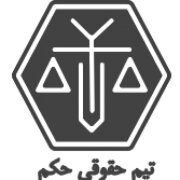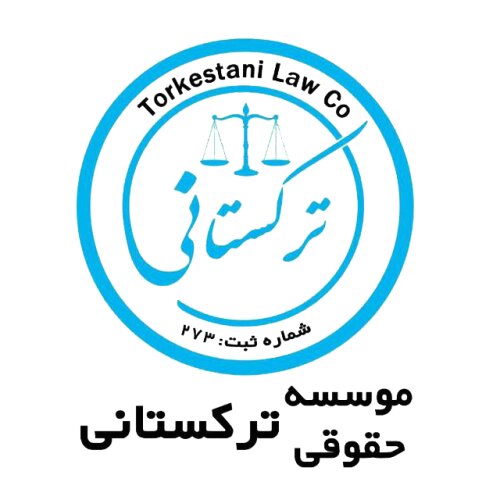Best DUI & DWI Lawyers in Iran
Share your needs with us, get contacted by law firms.
Free. Takes 2 min.
Or refine your search by selecting a city:
List of the best lawyers in Iran
About DUI & DWI Law in Iran
In Iran, driving under the influence of alcohol or drugs is considered a serious offense. Known as DUI (driving under the influence) or DWI (driving while intoxicated), this crime can result in severe legal consequences, including fines, license suspension, and even imprisonment. It is crucial to understand the local laws and seek legal advice if you are facing charges related to DUI or DWI.
Why You May Need a Lawyer
If you have been arrested for DUI or DWI in Iran, you may need a lawyer to help guide you through the legal process. A lawyer experienced in DUI cases can provide valuable assistance in negotiating with prosecutors, representing you in court, and seeking the best possible outcome for your case. Additionally, a lawyer can advise you on your legal rights and help you understand the implications of the charges you are facing.
Local Laws Overview
In Iran, the legal blood alcohol concentration (BAC) limit for driving is 0.05%. If a driver is found to have a BAC higher than this limit, they can be charged with DUI. Penalties for DUI in Iran can include fines, license suspension, and imprisonment. It is important to note that the punishment for DUI can vary depending on the circumstances of the case, such as the driver's BAC level and whether any accidents or injuries occurred as a result of the impaired driving.
Frequently Asked Questions
1. What are the legal consequences of a DUI conviction in Iran?
If convicted of DUI in Iran, you may face fines, license suspension, and imprisonment. Additionally, a DUI conviction can have long-lasting consequences, such as difficulty finding employment or obtaining car insurance in the future.
2. Can I refuse a breathalyzer test in Iran?
In Iran, refusing a breathalyzer test can result in penalties, such as license suspension or fines. It is advisable to comply with law enforcement's requests for testing to avoid additional legal consequences.
3. Is it possible to appeal a DUI conviction in Iran?
If you have been convicted of DUI in Iran, you may have the right to appeal the decision. It is recommended to seek legal advice to understand the appeal process and explore your options for challenging the conviction.
4. How can a lawyer help me with my DUI case in Iran?
A lawyer experienced in DUI cases can provide valuable assistance in navigating the legal system, negotiating with prosecutors, and representing you in court. Additionally, a lawyer can help you understand your legal rights and options for defense in your case.
5. Can I represent myself in a DUI case in Iran?
While it is possible to represent yourself in a DUI case in Iran, it is generally recommended to seek legal assistance. A lawyer can provide valuable expertise and guidance to help you navigate the legal process and seek the best possible outcome for your case.
6. How long does a DUI conviction stay on my record in Iran?
A DUI conviction in Iran can stay on your criminal record indefinitely. This can have long-term consequences, such as affecting your ability to secure certain jobs or obtain car insurance in the future.
7. Can I challenge the results of a breathalyzer test in Iran?
If you believe there are inaccuracies or errors in the results of a breathalyzer test, you may have the right to challenge the test in court. It is recommended to seek legal advice to understand your options for defense in your case.
8. How can I find a lawyer for my DUI case in Iran?
You can find a lawyer for your DUI case in Iran by asking for recommendations from friends or family, contacting local bar associations, or searching online directories for experienced DUI attorneys. It is important to choose a lawyer with expertise in DUI cases to ensure you receive the best possible legal representation.
9. What should I do if I am pulled over for suspected DUI in Iran?
If you are pulled over for suspected DUI in Iran, it is important to remain calm and comply with law enforcement's requests. Avoid making any incriminating statements and contact a lawyer as soon as possible to seek legal advice and representation.
10. What are my rights if I am arrested for DUI in Iran?
If you are arrested for DUI in Iran, you have the right to remain silent and seek legal representation. It is important to exercise your rights and avoid self-incrimination by refraining from answering questions without the presence of a lawyer. Contact a lawyer as soon as possible to protect your legal interests.
Additional Resources
If you need legal advice or assistance related to DUI and DWI in Iran, you can contact the Iranian Bar Association or reach out to local legal aid organizations for guidance. Additionally, government websites such as the Ministry of Justice may provide helpful information on legal rights and resources for individuals facing DUI charges.
Next Steps
If you are facing charges related to DUI or DWI in Iran, it is highly recommended to seek legal advice from a qualified lawyer with experience in handling DUI cases. A lawyer can help guide you through the legal process, protect your rights, and work towards the best possible outcome for your case. Remember to act quickly and consult with a lawyer as soon as possible to ensure your legal interests are safeguarded.
Lawzana helps you find the best lawyers and law firms in Iran through a curated and pre-screened list of qualified legal professionals. Our platform offers rankings and detailed profiles of attorneys and law firms, allowing you to compare based on practice areas, including DUI & DWI, experience, and client feedback.
Each profile includes a description of the firm's areas of practice, client reviews, team members and partners, year of establishment, spoken languages, office locations, contact information, social media presence, and any published articles or resources. Most firms on our platform speak English and are experienced in both local and international legal matters.
Get a quote from top-rated law firms in Iran — quickly, securely, and without unnecessary hassle.
Disclaimer:
The information provided on this page is for general informational purposes only and does not constitute legal advice. While we strive to ensure the accuracy and relevance of the content, legal information may change over time, and interpretations of the law can vary. You should always consult with a qualified legal professional for advice specific to your situation.
We disclaim all liability for actions taken or not taken based on the content of this page. If you believe any information is incorrect or outdated, please contact us, and we will review and update it where appropriate.
Browse dui & dwi law firms by city in Iran
Refine your search by selecting a city.

















